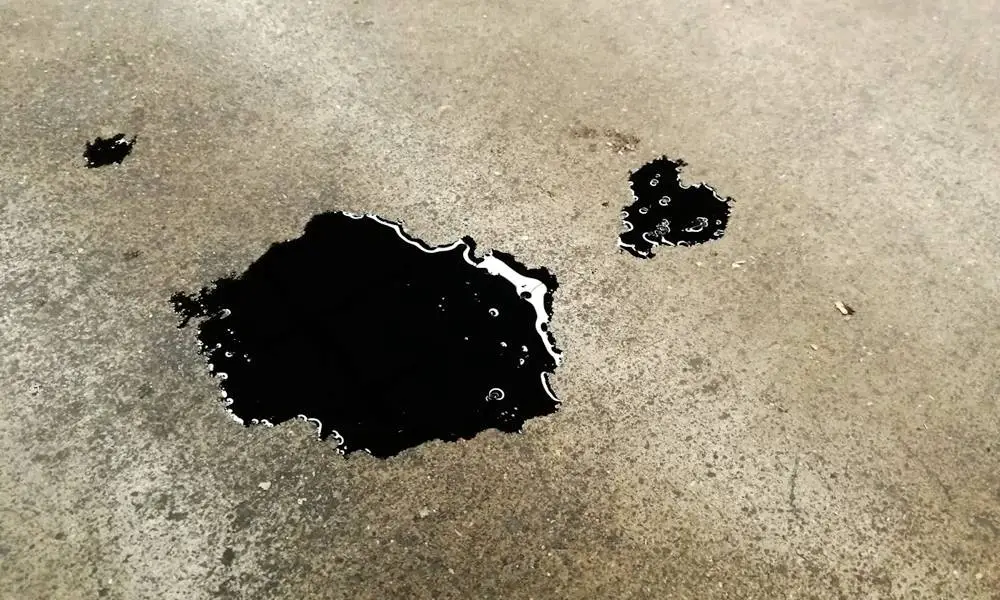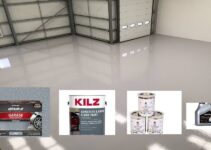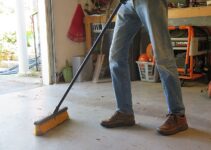How to Clean Oil Off Garage Floor
Garage floors often fall victim to oil stains, creating unsightly and potentially hazardous conditions. Fear not! There are several effective methods to restore the cleanliness of your garage floor. Let’s explore these solutions step by step.
Importance of a Clean Garage Floor
Maintaining a clean garage floor goes beyond mere aesthetics; it plays a pivotal role in creating a safer and more organized environment within your living space. A pristine garage floor not only enhances the overall appeal but also contributes to the well-being of your home.
Common Issue: Oil Stains on Garage Floors
One common challenge faced by garage owners is the presence of unsightly oil stains on the floor. However, with the right approach and effective solutions, tackling these stains can be a straightforward and successful endeavor.

Kitty Litter Method
Application of Clay Cat Litter
Initiate the cleaning process by generously covering the oil stain with clay cat litter. This absorbent material serves as an initial barrier against the oil, preparing it for the next steps in the cleaning process.
Allowing It to Sit for Optimal Absorption
Patience is key. Allow the clay cat litter to sit on the oil stain for several hours, or overnight for more stubborn stains. This extended duration ensures optimal absorption of the oil by the litter.
Using Liquid Dish Soap to Break Up Grease
Once the waiting period is over, it’s time to take action. Remove the clay cat litter and apply liquid dish soap directly onto the stain. This soap acts as a powerful agent, breaking down the grease and preparing it for removal.
Scrubbing With a Wire Brush
Equip yourself with a wire scrub brush and tackle the stain in a circular motion. The scrubbing action ensures that the soap penetrates the oil, effectively loosening its grip on the concrete surface.
Rinsing and Drying
Following the scrubbing process, rinse the area with water to wash away the soap, grease, and any remaining residue. Allow the cleaned area to air dry, revealing a garage floor devoid of any oil stains.
DIY Degreaser
Absorbing Fresh Oil Spills
For fresh oil spills, quick action is necessary. Absorb the oil using either kitty litter or sawdust, providing an immediate defense against the oil’s spread.
Creating a DIY Degreaser With Liquid Dish Soap
In a proactive approach, mix liquid dish soap with water to create a DIY degreaser. Apply this solution to the stained area, allowing the soap to penetrate and break down the oil.
Scrubbing the Area With a Wire Brush
Utilize a wire brush to scrub the concrete thoroughly. This ensures that the oil is not only broken down but also physically removed from the surface.
Rinsing With Hot Water
Complete the process by rinsing the area with hot water. This step serves to wash away the degreaser and any remnants of oil, leaving behind a pristine garage floor.
Store-Bought Products
Eco-Friendly Options Like Griot’s Oil & Grease Cleaner
Take the eco-conscious route by opting for environmentally friendly products such as Griot’s Oil & Grease Cleaner. These products not only effectively remove oil stains but also contribute to a greener cleaning routine.
Other Effective Store-Bought Products
Explore a variety of store-bought options, including Pour-N-Restore, Oil Eater, and Purple Power Driveway & Concrete Cleaner. Each product brings its unique strengths to the table, catering to different preferences and needs.
Application and Rinsing Process
Follow the instructions provided with the chosen product for application and thorough rinsing. Adhering to the recommended steps ensures maximum effectiveness in removing oil stains from your garage floor.
WD-40 Method
Soaking Up Oil With a Paper Towel
When dealing with excess oil, start by soaking it up using a paper towel. This initial step helps remove the bulk of the oil before moving on to the next stages.
Saturation With WD-40
Apply WD-40 generously on the oil stain, saturating the affected area. This allows the WD-40 to penetrate the oil and facilitate easier removal.
Allowing It to Soak
Allow the WD-40 to work its magic by letting it soak for 5-10 minutes. This waiting period maximizes its effectiveness in breaking down the oil.
Wiping With a Rag
After the soaking period, wipe the stain with a rag. This step removes the dissolved grease, leaving behind a cleaner surface.
Final Cleaning With Dish Soap and Water
Conclude the process by creating a mixture of dish soap and water. Use a scrubbing brush to clean any remaining grease, ensuring a thorough and effective cleaning of the oil-stained area.
Vinegar as a Natural Degreaser
Initial Application of Sawdust or Kitty Litter
For a natural approach, apply sawdust or kitty litter on the oil stain. This step initiates the absorption process, preparing the stain for further cleaning.
Soaking Overnight
Allow the absorbent material to work overnight, soaking up the oil and facilitating the cleaning process.
Creating a Vinegar-Based Cleaning Solution
Prepare a vinegar-based cleaning solution by mixing 1/2 teaspoon baking soda, 2 tablespoons white vinegar, 1/4 teaspoon dish soap, and 2 cups water. This solution acts as a natural degreaser.
Applying the Solution and Scrubbing
Apply the vinegar-based solution over the grease stain and let it soak. Use a scrubbing brush to clean the stain thoroughly, harnessing the natural cleaning power of vinegar.
Conclusion
Recap of Methods
In conclusion, each method offers a unique approach to tackle oil stains on garage floors. The effectiveness of the method depends on the severity of the stain and the materials at your disposal.
Choosing the Right Method Based on the Situation
Consider the severity of the oil stain and the resources available when selecting a cleaning method. Tailor your approach to ensure the best results for your specific situation.
Please note that it’s essential to exercise caution and follow safety guidelines when using cleaning agents and tools.
FAQs
How Long Should I Let the Kitty Litter Sit?
Allow the kitty litter to sit for several hours, or overnight for heavy stains, to maximize oil absorption.
Can I Mix Different Store-Bought Products?
It’s not recommended to mix different store-bought products, as their chemical compositions may interact unpredictably.
Is WD-40 Safe for All Types of Concrete?
WD-40 is generally safe for concrete, but it’s advisable to test a small, inconspicuous area first.
Can I Use Any Type of Vinegar for the Vinegar Method?
White vinegar is recommended for its degreasing properties in the vinegar method.
How Often Should I Clean Oil Stains to Prevent Long-Term Damage?
Regularly clean oil stains to prevent long-term damage to your garage floor; the frequency depends on usage and spill occurrences.


